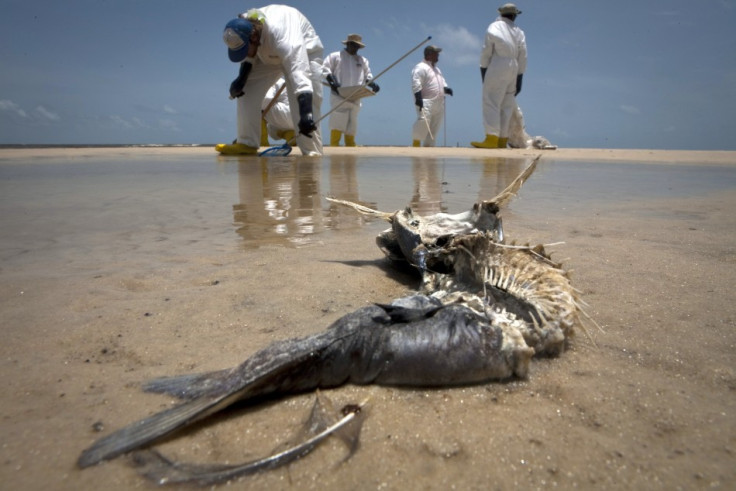Scientists Invent Magnetic Soap that Absorbs Oil Spilt in Water

Scientists from the University of Bristol in the UK have created a soap infused with magnetic characteristics that can separate oil from spills in water and absorb the former. The researchers would seem to have discovered a way to save millions of sea-dwelling creatures from the toxic hazards of oil spills.
The soap in question has been created by dissolving iron in a range of surfactant materials made up of chlorine and bromine ions, which are similar to mouthwash or fabric conditioners. The iron in the soap creates metallic centres within the soap particles.
During the experiment, the researchers inserted the new magnet-soap into a test tube underneath the oil-like substance. When a magnet was brought near the soap, it dissolved the substance and attached itself to the magnet.
Scientists had earlier created soaps that were sensitive to light, carbon dioxide or changes in pH, temperature or pressure.
"The particles of surfactant in solution are too small to see using light but are easily revealed by neutron scattering which we use to investigate the structure and behaviour of all types of materials at the atomic and molecular scale," said Dr. Isabelle Grillo, Head of the Chemistry Laboratories at Institut Laue-Langevin.
"As most magnets are metals, from a purely scientific point of view these ionic liquid surfactants are highly unusual, making them a particularly interesting discovery. From a commercial point of view, though these exact liquids aren't yet ready to appear in any household product, by proving that magnetic soaps can be developed, future work can reproduce the same phenomenon in more commercially viable liquids for a range of applications from water treatment to industrial cleaning products," said Julian Eastoe, a professor at the University of Bristol.
© Copyright IBTimes 2025. All rights reserved.





















